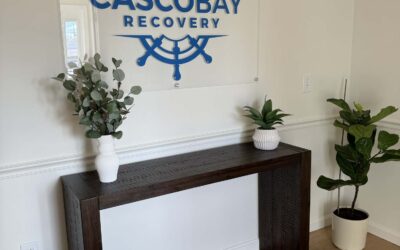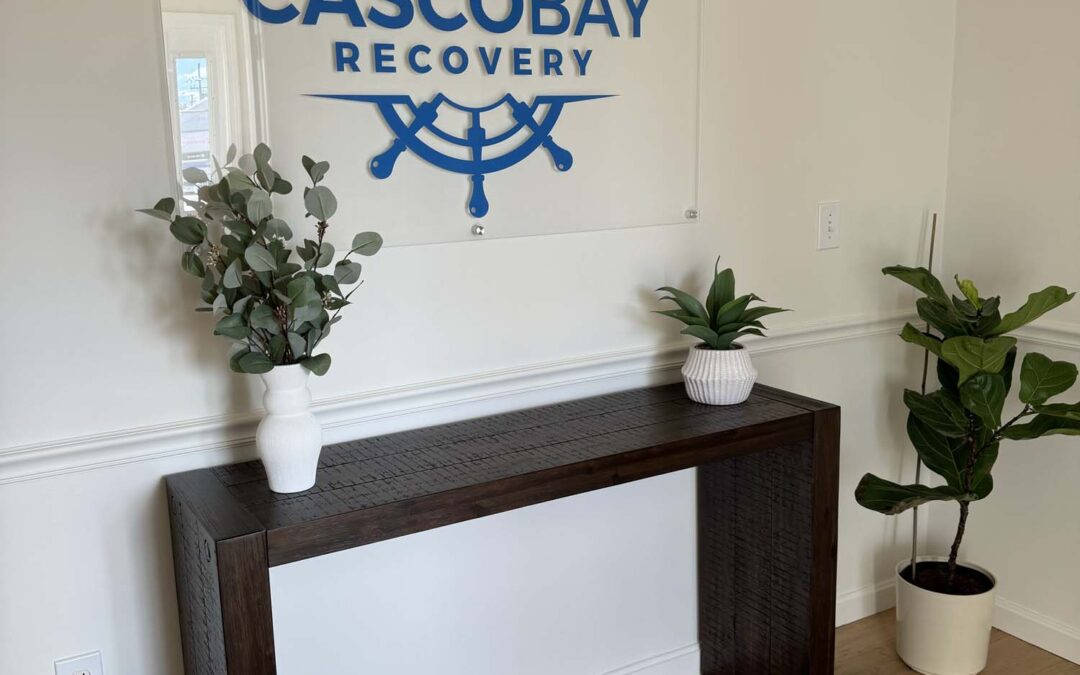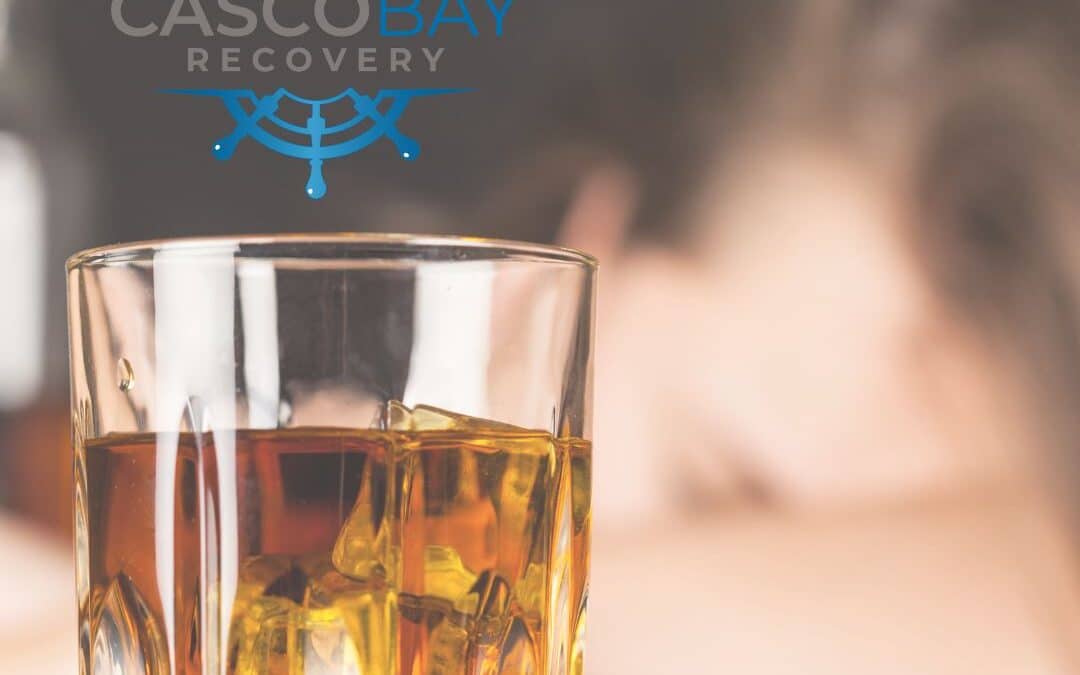Rehab Tailored for Men and Women
The path to recovery from substance addiction takes different forms for men and women. Gender-specific rehabilitation programs recognize these distinct needs, creating specialized environments where individuals can heal and grow alongside peers who share similar experiences.
Men’s Rehabilitation
Men’s rehabilitation programs, like our Men’s rehab program at Casco Bay Recovery, focus on addressing masculine stereotypes and societal pressures that often prevent men from seeking help. These programs create safe spaces where men can openly discuss their struggles without judgment, breaking down barriers that traditionally hold them back from emotional expression.
Women’s Treatment
Women’s treatment facilities address unique challenges females face during recovery, including past trauma, family responsibilities, and societal stigma. These centers provide specialized care that considers hormonal influences, pregnancy concerns, and childcare needs.
Our Approach at Casco Bay Recovery
At Casco Bay Recovery, we understand these gender-specific nuances. Our programs incorporate tailored approaches for both men and women, ensuring each person receives care that resonates with their experiences. Men’s programs emphasize strength-based recovery strategies, while women’s programs focus on healing in a nurturing, supportive environment.
The Effectiveness of Gender-Specific Treatment
The effectiveness of gender-specific treatment lies in its ability to address unique biological, psychological, and social factors. By creating separate spaces for men and women to heal, we enhance the recovery journey, leading to better outcomes and sustained sobriety.
Biological Differences in Addiction Recovery
Men and women experience addiction and recovery differently due to distinct biological factors. The presence of estrogen in women accelerates substance dependency, particularly with alcohol and opioids. Women’s bodies metabolize substances at different rates, leading to faster progression from first use to addiction.
Testosterone levels in men influence risk-taking behaviors and substance abuse patterns. Men typically require higher doses of substances to achieve similar effects, yet their bodies process these substances more efficiently.
Gender-specific withdrawal symptoms create unique challenges in recovery. Women often experience intense anxiety and mood fluctuations during withdrawal, while men commonly face heightened aggression and physical discomfort. These biological distinctions shape treatment protocols at Casco Bay Recovery, where medical teams adjust medication dosages and therapeutic approaches based on gender-specific needs.
The timing of cravings differs between genders – women report stronger urges during hormonal fluctuations, while men’s cravings often correlate with stress responses. Understanding these biological variations enables healthcare providers to develop targeted interventions that address gender-specific withdrawal patterns and recovery needs.
Psychological Factors Impacting Rehabilitation
Men and women face different psychological challenges when recovering from addiction.
Women and Substance Use
Women often use substances as a way to cope with underlying issues such as trauma, anxiety, or depression. Studies show that women are more likely to have mood disorders along with substance use problems, which creates complex psychological needs during treatment.
Men and Emotional Expression
Male patients often find it difficult to express their emotions and seek help because of societal expectations of masculinity. This psychological barrier can result in delayed treatment and worsening addiction. At Casco Bay Recovery, our male rehabilitation centers have specialized group therapy sessions that provide safe spaces for emotional expression.
Gender-Specific Treatment Approaches
The effectiveness of dual diagnosis treatment differs between genders. Women tend to respond well to trauma-informed care and interpersonal therapy methods, while men benefit from cognitive behavioral therapy that focuses on problem-solving and stress management techniques. These gender-specific psychological interventions target the distinct mental health patterns exhibited by each group during recovery.
Sociocultural Influences on Treatment Access
Men and women face distinct societal pressures when seeking addiction treatment. Traditional masculine norms often discourage men from acknowledging vulnerability, creating resistance to seeking help. Women encounter unique barriers tied to family responsibilities, particularly childcare obligations that can delay or prevent treatment entry.
Legal Pressures: Motivators for Men
Legal pressures serve as primary motivators for men entering rehab programs, often through court mandates or employment requirements.
Family Dynamics: Influencing Women’s Decisions
Women’s treatment decisions frequently revolve around family dynamics, with concerns about child custody and maintaining family stability influencing their choices.
Economic Disparities: Gender-Specific Challenges
Economic disparities create additional gender-specific challenges. Women typically earn less than men, limiting their access to private treatment facilities. Men’s rehab facilities often receive better funding and resources, while women’s programs struggle with limited availability and longer waitlists.
At Casco Bay Recovery, we address these sociocultural barriers through specialized programs. Our men’s drug treatment programs incorporate legal support services, while our women’s programs include family-centered approaches and flexible scheduling options. We recognize that breaking down stigma requires understanding these unique gender-specific challenges in substance abuse treatment.
Treatment Approaches for Men and Women
Men’s rehabilitation programs at Casco Bay Recovery emphasize structured physical activities and group dynamics. Male-focused programs incorporate competitive sports, team-building exercises, and strength training to build camaraderie and trust. These activities create natural opportunities for men to open up about their struggles in a comfortable, masculine environment.
Women’s programs address unique challenges through specialized services. Casco Bay Recovery provides essential childcare support, allowing mothers to focus on their recovery journey without the stress of arranging child supervision. Female-focused programs incorporate nurturing activities like art therapy and mindfulness sessions.
Trauma-informed care takes center stage in women’s rehabilitation, recognizing the high prevalence of past trauma among female participants. Specialized therapists work with women to process traumatic experiences through EMDR therapy and trauma-focused cognitive behavioral therapy. These therapeutic approaches help women develop healthy coping mechanisms and build resilience.
The gender-specific treatment environments at Casco Bay Recovery create safe spaces where participants can address sensitive issues without judgment or discomfort. These tailored approaches acknowledge the distinct recovery needs of each gender while maintaining the highest standards of care.
Outcomes and Effectiveness of Gender-Specific Rehab Programs
Research data reveals significant differences in treatment outcomes between gender-specific and traditional rehabilitation programs. Studies show women in gender-specific programs maintain sobriety rates 35% higher than those in mixed-gender settings during the first year of recovery. Men demonstrate a 28% improvement in treatment completion when participating in male-focused programs.
Creating Safe Spaces for Open Discussions
Gender-specific approaches create environments where clients feel safer discussing personal experiences. Women report increased comfort addressing trauma histories, while men express greater willingness to explore emotional vulnerabilities. These factors contribute to deeper engagement in therapy and improved long-term recovery success.
Importance of Multidisciplinary Care Teams
The integration of multidisciplinary care teams specializing in gender-specific treatment has proven crucial. At Casco Bay Recovery, specialized medical professionals, counselors, and support staff work collaboratively to address unique gender needs. This comprehensive approach has resulted in reduced relapse rates and improved mental health outcomes across both male and female programs.
Higher Success Rates for Co-Occurring Disorders
Recent studies indicate gender-specific programs achieve higher success rates in addressing co-occurring disorders. Women show better responses to integrated trauma therapy, while men benefit from targeted anger management and stress reduction techniques.
Special Considerations for Women’s Health in Rehab Programs
Women face unique health challenges during addiction recovery that require specialized attention. Research shows women develop substance dependencies faster than men, particularly with alcohol and opioids. This accelerated progression is due to biological factors like body composition and hormonal influences.
The female body processes substances differently, leading to more severe health complications. Women in recovery often experience higher risks of liver disease, heart problems, and reproductive health issues. These physical challenges are intertwined with mental health concerns, creating a complex web of medical needs.
Comorbid Conditions in Women
Comorbid conditions present another critical consideration. Women in recovery frequently manage multiple health issues simultaneously, such as:
- Thyroid disorders
- Autoimmune conditions
- Hormonal imbalances
- Bone density concerns
- Cardiovascular complications
Comprehensive Treatment Plans
Medical professionals at rehabilitation centers must address these interconnected health challenges through comprehensive treatment plans. This includes regular health screenings, medication management, and specialized medical care tailored to women’s unique physiological needs.
Reproductive Health and Substance Use
The relationship between reproductive health and substance use requires particular attention. Menstrual cycle changes, pregnancy considerations, and reproductive system impacts demand careful monitoring and specialized treatment protocols.
Casco Bay Recovery Center and a Customized Approach
At Casco Bay Recovery Center, we understand that effective addiction treatment requires a personalized approach based on gender-specific needs. Our dedicated team crafts individualized treatment plans that address the unique challenges faced by men and women during their recovery journey.
Men in our program benefit from specialized group therapy sessions focused on addressing societal pressures, while women receive comprehensive support that includes trauma-informed care and health-specific interventions. Our women’s treatment program offers gender-specific addiction rehab designed to support women’s unique recovery needs. Both programs incorporate evidence-based treatments tailored to each gender’s biological and psychological needs.
Ready to start your recovery journey? Contact us today to learn about our gender-specific programs. Our experienced team will guide you through treatment options designed to maximize your chances of successful, lasting recovery.








